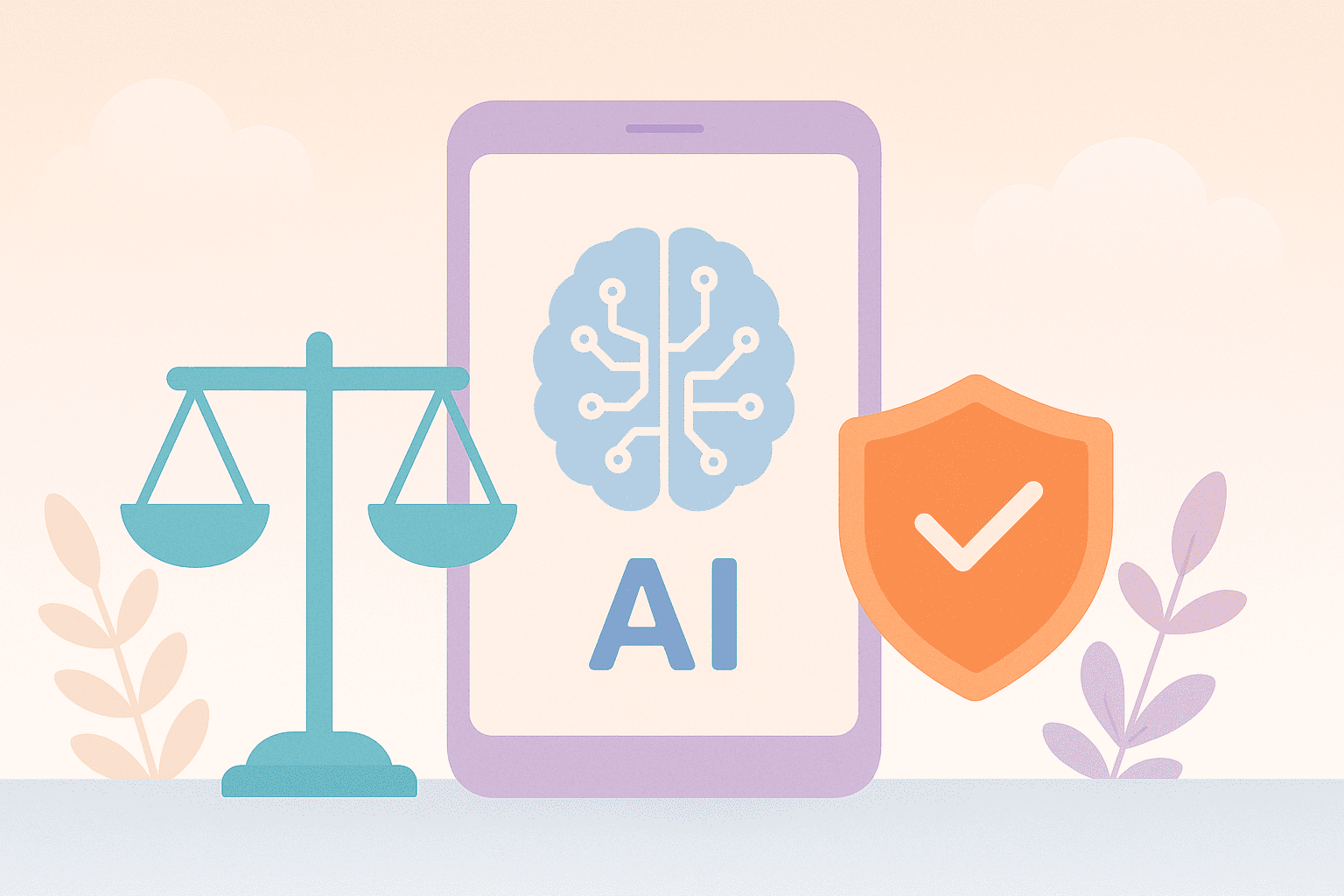Artificial Intelligence (AI) has rapidly transformed how we use mobile applications. From voice assistants and chatbots to personalized recommendations and photo editing tools, AI-driven features have become an integral part of the user experience. However, as innovation continues, questions surrounding the ethics of AI features in mobile apps have become increasingly important. Developers, users, and regulators are now debating how to balance innovation with privacy, fairness, and accountability.

1. Understanding the Role of AI in Mobile Apps
AI enhances mobile applications by providing smarter, adaptive, and personalized experiences. Whether it’s predicting what a user wants to watch next on a streaming app or identifying faces in a photo gallery, AI algorithms are at the core of these interactions. However, as these systems learn from user behavior, they also collect vast amounts of personal data — raising questions about transparency and data handling practices.
2. Privacy Concerns and Data Ethics
One of the most pressing ethical challenges in mobile AI is data privacy. Mobile apps often rely on continuous data collection to function effectively. However, without proper transparency, users may not realize how much information is being gathered or how it’s used. Sensitive data, such as location, browsing history, and biometric information, can be exploited if mishandled.
Developers must therefore implement clear data policies and consent mechanisms. Users should have control over what data is collected and the ability to revoke permissions at any time. For developers seeking to understand the global standards, resources like ISO/IEC 23894:2023 AI Ethics Guidelines provide a strong framework for ethical AI implementation.
3. Algorithmic Bias and Fairness
AI systems learn from historical data, and that data may contain hidden biases. For example, an AI-powered recruitment app might inadvertently favor one demographic over another if trained on biased datasets. Similarly, recommendation algorithms in shopping or media apps can reinforce stereotypes or filter bubbles.
Ethical mobile app development requires teams to regularly audit their algorithms. Ensuring fairness means curating balanced training data, testing across diverse groups, and adopting transparent model evaluation methods. Developers must ask: “Does this AI treat all users equally?”
4. Transparency and Explainability
Another key component of ethical AI in mobile apps is explainability. Users often don’t understand how or why an app makes certain decisions — for instance, why a specific ad appears or why a loan application was rejected. When AI systems operate as “black boxes,” trust diminishes.
To maintain transparency, developers should provide users with clear explanations about how AI-based decisions are made. This doesn’t necessarily mean revealing proprietary algorithms but offering enough context for users to make informed choices. Labels like “AI-generated” or “AI-suggested” can help set expectations and improve trust.
5. Security and Responsible AI Usage
AI models in mobile apps can be vulnerable to exploitation. Hackers might manipulate inputs to trick image recognition or voice assistants, leading to potential misuse. Moreover, malicious apps could use AI to create deepfakes, clone voices, or generate fake identities, blurring the line between reality and deception.
Developers must adopt robust security practices, including encryption, model validation, and continuous threat assessment. Ethical AI also involves setting boundaries — for example, refusing to integrate AI systems that can be easily weaponized for misinformation or fraud.
6. The Role of Developers and Companies
Building ethical AI-powered mobile apps isn’t just about compliance; it’s about responsibility. Developers must adopt a “privacy-first” mindset and integrate ethical review processes throughout the app’s lifecycle — from design to deployment. Companies should establish AI ethics boards or committees to ensure accountability in decision-making.
Some leading tech firms have already started publishing their AI ethics principles. Google, Microsoft, and Apple, for instance, have created internal frameworks to ensure that their AI technologies align with human-centered values. Smaller app developers can learn from these examples and implement scaled-down versions suitable for their projects.
7. User Awareness and Digital Literacy
While developers play a crucial role, users must also understand how AI functions in their apps. Educating users about AI’s limitations, potential biases, and privacy implications empowers them to make informed decisions. Developers can include in-app tutorials, pop-up explanations, or privacy dashboards that clearly show how AI interacts with user data.
8. Regulatory Compliance and Future Trends
As AI continues to evolve, governments are establishing stricter regulations to govern its use. The European Union’s AI Act, for example, categorizes AI applications based on risk and enforces penalties for non-compliance. Mobile app developers targeting international markets must stay updated with these evolving standards.
Future ethical AI design will likely involve automated auditing systems, real-time transparency dashboards, and more active participation from end-users. AI won’t just be about intelligence — it will be about accountability and human values.
9. Conclusion
The ethics of AI features in mobile apps are no longer optional considerations — they are necessities. Ethical AI development ensures user trust, long-term sustainability, and compliance with emerging global regulations. Developers who prioritize fairness, transparency, and data protection not only avoid legal risks but also build stronger relationships with their users.
In an age where innovation moves faster than regulation, embracing ethical AI practices is not just about doing what’s right — it’s about ensuring that technology serves humanity responsibly.

